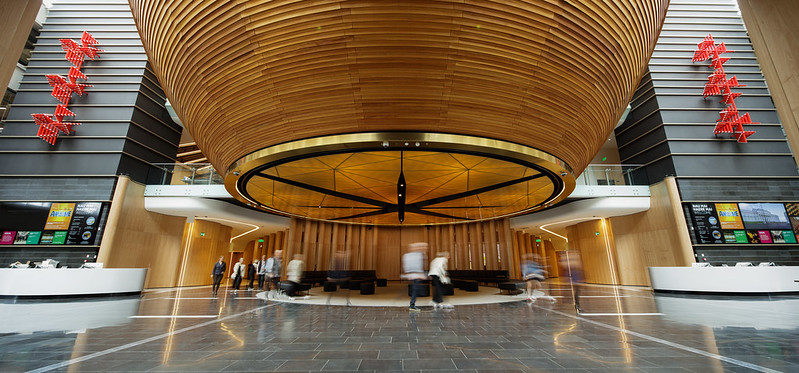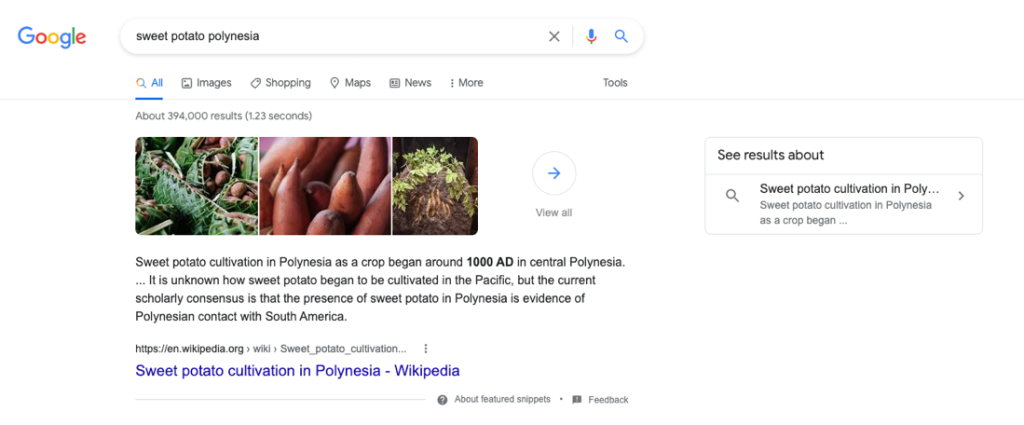
Towards the end of 2020 the Collection Information and Access department at Tāmaki Paenga Hira Auckland War Memorial Museum was awarded a Wikicite grant to fund a Wikimedian in Residence to help unlock the Museum’s knowledge held within 150+ years of academic outputs and research publications, with a focus on its primary academic journal, the Records of the Auckland Museum. User: Prosperosity, Marty Blayney, started working at the Museum in January 2021, becoming the first paid Wikimedian in Residence in Aotearoa New Zealand.
This project was an important part of our wider Wikipedia work. Auckland Museum and the Wikimedia Foundation have similar strategic aims around the dissemination of open knowledge, and we have had a long involvement with Wikimedia projects. We have over 170,000 images available on Commons, and hosted New Zealand’s first Wikimedian in Residence as an intern in 2017. Last year a Wiki Workplan was put in place, based on recommendations from the local editor community, and the Wikicite project helped us to address all three of broad themes: engage with the community and enhance and enrich Wikipedia, Wikimedia and Wikidata, as well as more generally helping to make the Museum’s research outputs accessible to Wikipedia’s massive global audience.
The project concluded at the end of May 2021, and we are delighted with the results. Despite a COVID lockdown at the start of the year we managed to hold two in-person events, as until recently New Zealand was one of the few places in the world where in person events could be safely held. The first, on 1 May, kicked off a series of regular edit-a-thons in-person in the Museum Library (and online during lockdowns), while on 21 May we hosted 22 GLAM professionals from around the Auckland region at a workshop where we promoted the use of Wikimedia platforms for the sector and encouraged them to do some basic editing.
Marty also undertook a significant amount of editing. Every article in the Records, from 1930 to the most recent issue, now has a Wikidata entry. 49 new Wikipedia articles were created, and 882 references were added to existing articles, enhancing the quality of information on Wikipedia and further dispersing the Museum’s research output. The topics covered, such as Pitcairn Island, Niue, Adzes, the Yellow-bellied sea snake, and tapa cloth cover the range of the Museum’s collecting focus on Aotearoa and the Pacific. A particular highlight was the creation of an article on Sweet potato cultivation in Polynesia, which has reached ‘Good Article’ status. He also compiled some case studies around adding GLAM research to Wikipedia articles, with a focus on History and Natural Science collections.
To date these contributions have had over 1.9 million views, and while this illustrates the ability of Wikicite and Wikipedia to vastly increase access to the Museum’s research there is a further benefit. As Wikipedia contributes to Google’s knowledge graph, the Museum’s research is now at the fingertips of some of the 4.6 billion internet users around the world.
Overall, we are delighted with the results of this project, and with Wikicite’s support, without which it would not have been possible. We have taken some significant steps towards unlocking the Museum’s research and making it accessible. Having bibliographic information available on Wikidata unlocks it for multilingual access, and the interaction of Wikipedia and Google’s knowledge graph makes the Museum’s research available to a massive global audience. We will continue this work alongside other Wikimedia-related projects, which people can keep up with on our GLAM project page. We are also pleased that the success of this work has enabled us to keep Marty on as part-time employee.
Big thanks to Liam Wyatt of Wikicite for supporting this project, and to the Wikimedia Foundation for their generous and ongoing support of GLAM Wiki projects more broadly.

Can you help us translate this article?
In order for this article to reach as many people as possible we would like your help. Can you translate this article to get the message out?
Start translation
